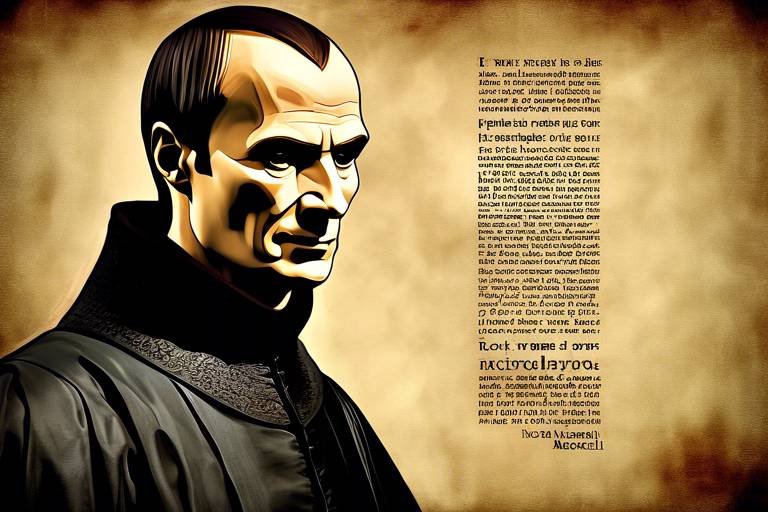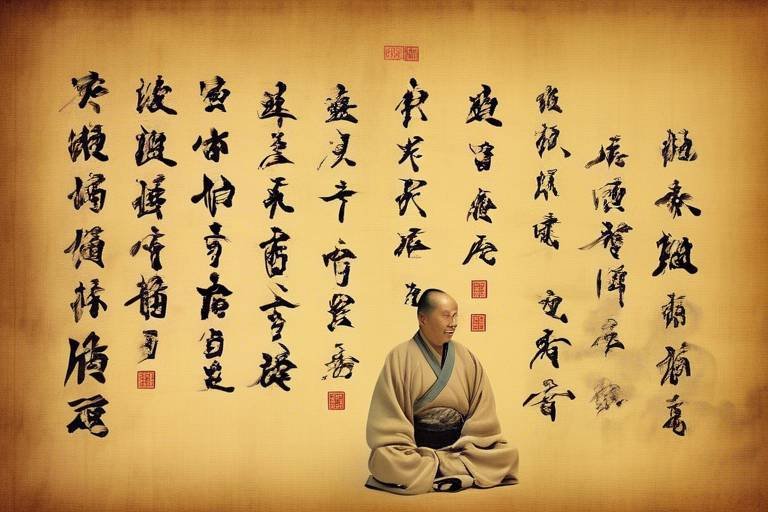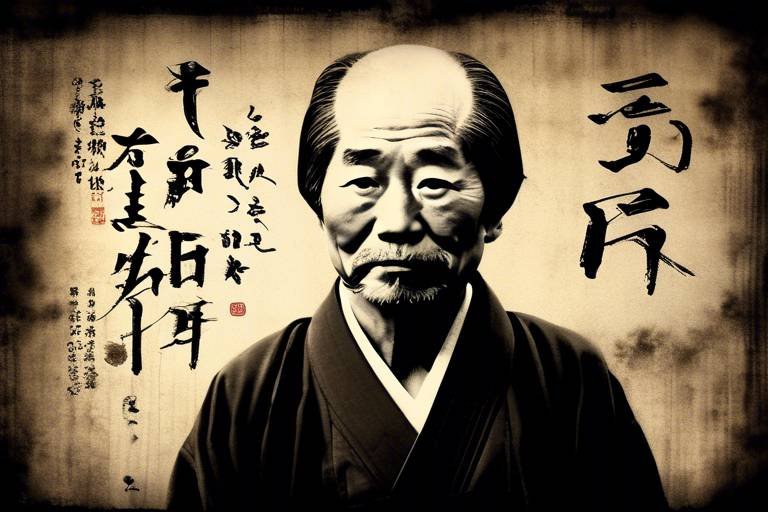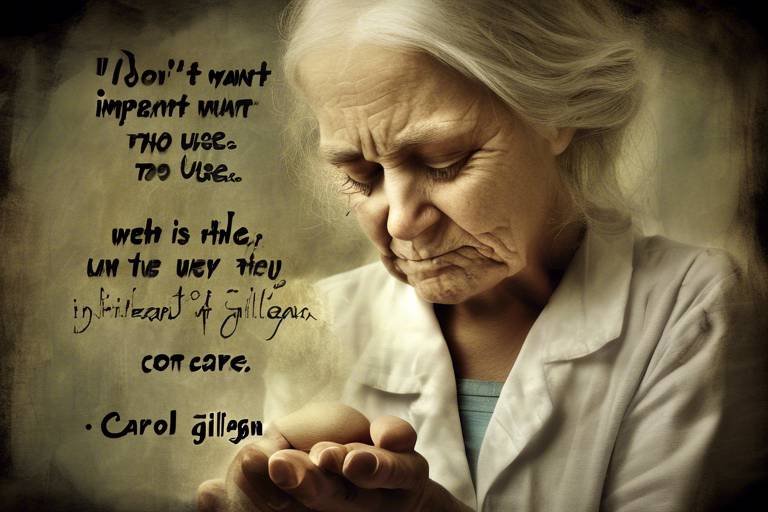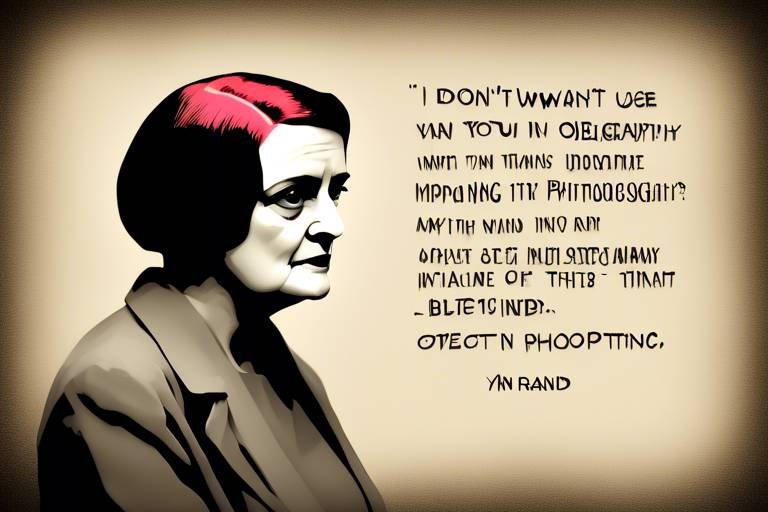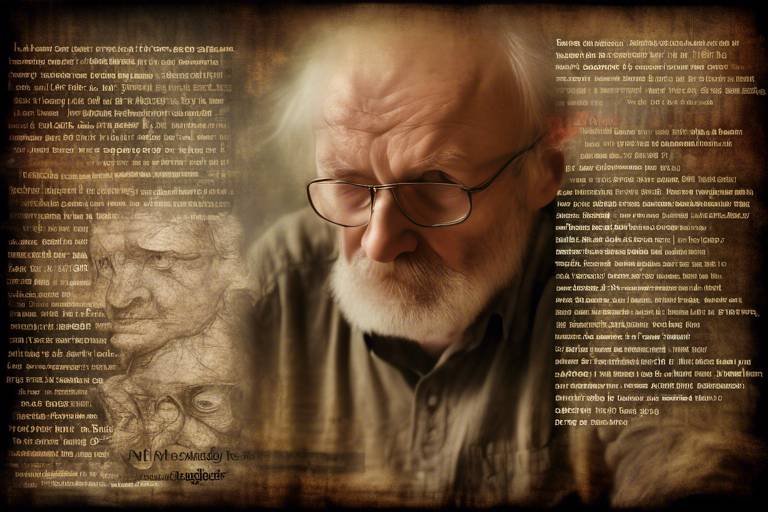Is the Philosophy of Niccolo Machiavelli Relevant Today?
When you think of political strategy, the name Niccolo Machiavelli often comes to mind. His work, particularly "The Prince," has been a cornerstone of political philosophy for centuries. But you might wonder, in a world so different from the Renaissance, is Machiavelli still relevant? The answer is a resounding yes! His insights into power dynamics, leadership, and human nature resonate with modern political landscapes, business environments, and even personal relationships.
To understand why Machiavelli's ideas remain influential, we must first consider the world in which he lived. The Renaissance was a time of upheaval, marked by the rise and fall of city-states, shifting alliances, and the constant struggle for power. Machiavelli's observations were rooted in this chaotic environment, and his pragmatic approach to governance was revolutionary. He stripped away the idealism that often clouds political discourse, focusing instead on the realities of human behavior and the often harsh nature of leadership.
In today’s context, we see echoes of Machiavelli's principles in various facets of society. Political leaders often grapple with the balance between ethics and effectiveness, much like their Renaissance counterparts. The question of whether the ends justify the means is still a hot topic, especially in an era where political polarization is rampant. Are leaders today more like the cunning fox or the fierce lion that Machiavelli described? The answer may vary, but the underlying principles of his philosophy continue to shape our understanding of leadership.
Moreover, Machiavelli's ideas extend beyond politics into the realm of business. The corporate world is not devoid of Machiavellian strategies, where executives must navigate complex hierarchies and fierce competition. The principles of virtù (skill and strength) and fortuna (luck) are just as applicable in the boardroom as they are in the political arena. In fact, many successful business leaders embody Machiavellian traits, using their cunning to outmaneuver competitors and seize opportunities.
As we delve deeper into Machiavelli’s philosophy, we will uncover the timeless relevance of his ideas, exploring how they can inform modern decision-making and governance. Whether you’re a politician, a business leader, or simply someone interested in the dynamics of power, understanding Machiavelli can provide you with valuable insights into the human condition and the nature of leadership.
- What is Machiavelli best known for? Machiavelli is best known for his political treatise "The Prince," where he outlines his views on power, leadership, and statecraft.
- How does Machiavelli's philosophy apply to modern politics? His ideas about the pragmatic use of power and the importance of adaptability are highly relevant in today's political landscape.
- Can Machiavelli's principles be applied to business? Absolutely! Many successful business leaders utilize Machiavellian strategies to navigate competition and manage their organizations effectively.
- What are the key concepts in Machiavelli's philosophy? The key concepts include virtù (skill and strength) and fortuna (luck), which highlight the interplay between a leader's capabilities and external circumstances.

The Historical Context of Machiavelli
To truly appreciate the insights of Niccolo Machiavelli, one must first understand the tumultuous political landscape of the Renaissance. This period was marked by significant upheaval, characterized by the decline of feudalism, the rise of city-states, and a shift in power dynamics across Europe. Machiavelli wrote during a time when Italy was fragmented into various principalities, each vying for power and influence. The constant warfare and political intrigue of the era shaped his views on governance and leadership.
The Renaissance itself was not just an artistic movement; it was a time of intellectual rebirth and exploration. Scholars and thinkers began to challenge traditional norms and question the status quo. This environment fostered Machiavelli's revolutionary ideas about politics, where he argued that the ends often justify the means. He believed that rulers must be pragmatic and sometimes ruthless to maintain stability and power.
Moreover, the influence of classical philosophy cannot be overstated. Machiavelli was heavily inspired by ancient Roman thinkers, particularly Cicero and Plato, yet he diverged from their idealistic views. While Plato envisioned a philosopher-king who ruled based on virtue and wisdom, Machiavelli recognized the harsh realities of political life. He understood that power often requires manipulation, deception, and a keen understanding of human nature.
During this era, the Church also played a pivotal role in politics. The Papacy wielded immense power, often acting as a political entity rather than a purely religious institution. This blending of religion and politics further complicated the landscape, with leaders needing to navigate both secular and spiritual authority. Machiavelli's writings reflect this complexity, as he often discussed the necessity of balancing moral considerations with practical governance.
As we delve deeper into Machiavelli's philosophy, it's essential to recognize how the historical context influenced his thoughts. The political instability of his time led him to advocate for a more realistic approach to leadership. His experiences in diplomatic missions and his observations of various rulers provided him with a unique perspective that still resonates today. Understanding this backdrop allows us to grasp the full impact of his ideas on modern governance.
In summary, the historical context of Machiavelli is crucial for understanding his contributions to political thought. The Renaissance's blend of intellectual exploration, political fragmentation, and the intertwining of church and state created a fertile ground for Machiavelli's revolutionary ideas. His pragmatic approach to leadership, shaped by the realities of his time, continues to offer valuable insights for contemporary leaders navigating the complexities of today's political landscape.

Key Concepts in Machiavelli's Philosophy
When we dive into the world of Niccolo Machiavelli, we encounter a treasure trove of ideas that continue to resonate in today's political and business arenas. At the heart of his philosophy lie two pivotal concepts: virtù and fortuna. These ideas are not just relics of the past; they serve as lenses through which we can examine the actions and decisions of leaders in our contemporary world. Machiavelli's insights urge us to consider the balance between skill and luck, and how these elements shape the destinies of individuals and nations alike.
Virtù, in Machiavelli's lexicon, refers to the qualities and skills that a ruler must possess to effectively navigate the tumultuous waters of governance. It's about more than just being clever or strong; it's the ability to adapt, to seize opportunities, and to bend circumstances to one's will. Think of it as a chess game where the best players anticipate moves, strategize, and sometimes even bluff their way to victory. In modern leadership, whether in politics or business, the embodiment of virtù is evident in those who can pivot quickly in response to changing environments, demonstrating resilience and strategic foresight.
In the realm of political leadership, virtù manifests in various ways. Today’s leaders often face complex challenges that require not just intelligence but also an acute understanding of human nature and the political landscape. For instance, consider how some leaders navigate crises by employing a mix of charisma, tactical decisions, and public relations savvy. They embody virtù by being proactive rather than reactive, creating narratives that resonate with their constituents or employees. This ability to craft a compelling vision while managing the realities of governance is what sets effective leaders apart from the rest.
Looking at contemporary politicians, we can identify several who exemplify the principles of virtù. They often engage in strategic alliances, make tough decisions, and utilize media to their advantage. These leaders understand that politics is not merely about ideals but also about practical outcomes. For example, a politician facing a public health crisis might employ virtù by mobilizing resources, rallying support from various factions, and communicating transparently with the public, all while maintaining their political capital.
The application of virtù extends beyond politics into the corporate world. Successful executives often exhibit Machiavellian traits, such as decisiveness, adaptability, and a keen sense of timing. They understand that in a competitive marketplace, being able to pivot quickly in response to market trends or consumer behavior can mean the difference between thriving and merely surviving. Take, for instance, a tech company CEO who embraces innovation while managing risks effectively. This leader demonstrates virtù by anticipating industry shifts and positioning their company ahead of competitors.
On the flip side, we have fortuna, which represents the element of luck or fortune. Machiavelli recognized that no matter how skilled a leader may be, external circumstances can drastically alter the course of events. In today’s world, this interplay between skill and luck is ever-present. Leaders must acknowledge that while they can control their actions and decisions, factors such as economic downturns, natural disasters, or unexpected political shifts can derail even the best-laid plans. Understanding the role of fortuna allows leaders to remain humble and adaptable, recognizing that success is often a blend of preparation and serendipity.
- What is the significance of Machiavelli's concept of virtù?
Virtù emphasizes the importance of a leader's skills and adaptability in navigating complex situations, highlighting that success often requires more than just good intentions. - How does fortuna influence leadership today?
Fortuna illustrates that luck plays a crucial role in leadership outcomes, reminding leaders to remain flexible and ready to respond to unforeseen challenges. - Can Machiavelli's ideas be applied in modern business?
Absolutely! Many successful business leaders employ Machiavellian principles, using strategic thinking and adaptability to thrive in competitive environments.

The Notion of Virtù
Virtù is one of the cornerstones of Niccolò Machiavelli's philosophy, encapsulating the idea that a ruler's skill, strength, and cunning can significantly influence their success. In a world where the winds of fortune can change at any moment, virtù represents the power of human agency and the ability to shape one’s destiny. Think of it as the art of being proactive rather than reactive—it's about seizing opportunities and making decisive moves that can alter the course of events. This concept is not just relevant to kings and princes; it speaks volumes to contemporary leaders across various fields, from politics to business.
In today's fast-paced environment, leaders are often faced with unexpected challenges that require a strong sense of virtù. Consider a political leader who must navigate a crisis—perhaps a sudden economic downturn or a public health emergency. Their ability to respond effectively, drawing upon their resources and insights, is a testament to their virtù. They must display courage, intelligence, and adaptability to steer their organization or country through turbulent waters. This is not just about having a plan; it's about the capacity to pivot and make tough decisions in real-time.
Moreover, virtù is not merely an individual trait but can also be seen as a collective attribute of a leadership team. When a group of leaders works together, their combined virtù can create a powerful force. This synergy can lead to innovative solutions and effective strategies that might not have emerged from a single leader's perspective. In this sense, virtù can be thought of as a team sport, where collaboration enhances the ability to achieve goals.
However, the concept of virtù is often misunderstood. Many people associate it with ruthless ambition or manipulation, but that’s only part of the picture. True virtù involves a balance of ambition with ethical considerations. A leader with virtù recognizes that while they may need to make hard choices, they also have a responsibility to their followers and the greater good. This moral dimension adds depth to Machiavelli’s ideas, suggesting that effective leadership requires not just skill and strategy, but also a sense of integrity and accountability.
In examining virtù within the context of modern leaders, we can see various manifestations of this concept. For instance, leaders like Jacinda Ardern, former Prime Minister of New Zealand, displayed virtù through her compassionate yet decisive leadership during crises, such as the Christchurch mosque shootings and the COVID-19 pandemic. Her ability to communicate effectively and make tough decisions while maintaining public trust exemplifies the essence of virtù in action.
On the other hand, we can observe leaders who may possess certain traits of virtù but fail to utilize them effectively. This can lead to missed opportunities or poor decision-making. Therefore, it’s crucial for leaders today to cultivate their virtù actively. They should constantly assess their strengths and weaknesses, seek feedback, and remain open to learning and adapting. In doing so, they not only enhance their own capabilities but also inspire those around them to rise to the occasion.
In conclusion, the notion of virtù is not just a relic of Machiavelli’s time; it remains a vital concept for leaders navigating the complexities of the modern world. By embracing virtù, leaders can transform challenges into opportunities, fostering a culture of resilience and innovation. As we look at the political and business landscapes today, the question remains: are our leaders ready to embody the spirit of virtù and lead us towards a brighter future?
- What is virtù in Machiavelli's philosophy?
Virtù refers to a ruler's ability to shape their destiny through strength, cunning, and skill, emphasizing the importance of human agency in leadership. - How can virtù be applied in modern leadership?
Modern leaders can apply virtù by being proactive, making decisive choices, and balancing ambition with ethical considerations. - Is virtù only relevant to political leaders?
No, virtù is applicable to leaders in various fields, including business, where the ability to adapt and seize opportunities is crucial.

Virtù in Political Leadership
The concept of virtù, as articulated by Niccolò Machiavelli, is a fascinating lens through which we can examine the effectiveness of modern political leaders. But what exactly does it mean for a leader to possess virtù? In essence, it refers to a ruler's ability to navigate the treacherous waters of power, using not just strength but also cunning and intelligence. This idea is particularly relevant today, as we watch leaders grapple with complex challenges that require more than just traditional governance skills.
Take, for instance, the political landscape of the 21st century. Leaders are often faced with issues that are not only multifaceted but also rapidly evolving. Whether it's climate change, economic disparity, or global health crises, the ability to adapt and respond with both decisiveness and strategic foresight is crucial. Leaders who embody virtù are those who can not only anticipate challenges but also craft innovative solutions that resonate with their constituents. Think of them as skilled navigators steering their ships through a storm; they must read the winds and adjust their sails accordingly.
In examining contemporary politicians, we can identify several who exemplify the traits of virtù. For example, leaders like Angela Merkel and Jacinda Ardern have demonstrated a unique blend of strength and empathy, effectively balancing the demands of their offices with the needs of their people. They understand that power is not just about authority; it's also about the ability to inspire and unite. This duality is a hallmark of virtù, where emotional intelligence complements tactical acumen.
However, it's not just about individual leaders; the concept of virtù can also apply to political parties and movements. A party that successfully adapts its platform in response to societal changes, while maintaining its core values, showcases virtù in action. This agility allows them to remain relevant and effective in a constantly shifting political landscape. For example, consider how various parties have had to pivot their strategies in response to the rise of social media and the increasing importance of digital communication. Those who have embraced these changes have often found greater success in engaging with the electorate.
To illustrate the impact of virtù in political leadership, let's take a look at a comparison of leaders who have successfully embodied this principle versus those who have struggled:
| Leader | Virtù Characteristics | Outcome |
|---|---|---|
| Angela Merkel | Decisive, empathetic, strategic | Stabilized Germany during crises |
| Jacinda Ardern | Compassionate, adaptive, communicative | High approval ratings and public trust |
| Donald Trump | Polarizing, reactive, impulsive | Divisive political climate |
| Boris Johnson | Inconsistent, controversial, reactive | Political turmoil and uncertainty |
As we can see from this table, leaders who embody the essence of virtù tend to create more stable and positive outcomes for their nations. In contrast, those who lack this quality often find themselves embroiled in controversy and public dissent. This raises an important question: how can aspiring leaders cultivate virtù in their own political journeys? The answer lies in a commitment to continuous learning, self-awareness, and the ability to connect with the people they serve.
In conclusion, the relevance of Machiavelli's concept of virtù in political leadership cannot be overstated. As we navigate the complexities of modern governance, it is clear that leaders who can blend strength with cunning, empathy with strategy, will not only survive but thrive in today's unpredictable political landscape.
- What is the main idea behind Machiavelli's concept of virtù?
Virtù refers to a leader's ability to shape their destiny through strength, cunning, and adaptability. - How can modern leaders apply the concept of virtù?
By being decisive, empathetic, and strategic in their decision-making processes. - Does virtù apply only to political leaders?
No, the principles of virtù can also be applied to business and organizational leadership. - Why is the concept of virtù still relevant today?
Because modern leaders face complex challenges that require a blend of strength and cunning to navigate effectively.

Virtù in Business Leadership
When we think of business leadership, we often picture CEOs steering their companies through turbulent waters, making decisions that can either lead to monumental success or catastrophic failure. This is where the concept of virtù becomes especially relevant. In Machiavelli's philosophy, virtù is not merely about virtue in the traditional sense; it's about a leader's ability to adapt, innovate, and take decisive action in the face of uncertainty. Modern business leaders who embody virtù are those who can navigate the complexities of the corporate world with a blend of strategic thinking and practical wisdom.
Consider the recent rise of tech giants like Elon Musk and Jeff Bezos. These leaders have demonstrated virtù by not only envisioning futures that others deem impossible but also by executing plans that catapult their companies to the forefront of innovation. Musk, for example, has taken bold risks with ventures like SpaceX and Tesla, often challenging the status quo and facing significant backlash. Yet, his ability to pivot and adapt—hallmarks of virtù—has allowed him to turn skepticism into success. Similarly, Bezos transformed Amazon from a modest online bookstore into a global e-commerce powerhouse through relentless focus and strategic foresight.
However, virtù in business leadership isn't just about individual success stories; it's also about creating a culture that encourages resilience and adaptability. Leaders who understand this principle often foster environments where teams are encouraged to take calculated risks, learn from failures, and iterate on their ideas. This approach not only drives innovation but also cultivates a workforce that feels empowered and engaged. For instance, companies like Netflix have thrived by adopting a culture of freedom and responsibility, allowing employees to take ownership of their projects and make decisions that align with the company’s vision.
In essence, virtù in business leadership is about marrying vision with action. It's about having the foresight to identify opportunities and the courage to pursue them, even when the path is fraught with challenges. Leaders who embody this principle are often seen as trailblazers, setting the tone for their industries and inspiring others to follow suit. They understand that in the world of business, just like in Machiavelli's Italy, the ability to navigate the unpredictable landscape is what separates the successful from the mediocre.
Ultimately, the lessons of virtù are not just applicable to the high-stakes world of corporate leadership. They resonate across various sectors and can guide anyone in a position of influence. Whether you're leading a startup, managing a team, or even just trying to make your mark in your field, embracing the principles of virtù can empower you to take charge of your destiny and shape your future. So, as you reflect on your leadership style, ask yourself: Are you ready to embody virtù and lead with purpose?
- What is virtù in the context of Machiavelli's philosophy?
Virtù refers to a leader's ability to shape their own destiny through strength, cunning, and adaptability. - How can virtù be applied in modern business leadership?
Modern leaders can apply virtù by embracing strategic thinking, taking calculated risks, and fostering a culture of innovation. - Who are some examples of leaders who embody virtù?
Leaders like Elon Musk and Jeff Bezos exemplify virtù through their innovative approaches and ability to navigate challenges. - Why is the concept of virtù important today?
In today's fast-paced and unpredictable business environment, virtù helps leaders remain resilient and effective in decision-making.

The Role of Fortuna
In the intricate tapestry of leadership and governance, Fortuna—often translated as "fortune" or "luck"—plays a critical role. Machiavelli viewed Fortuna as a powerful, unpredictable force that can either elevate a ruler to greatness or bring about their downfall. Imagine a ship navigating through a stormy sea; no matter how skilled the captain, the tempest can alter their course in an instant. This analogy reflects how leaders today must contend with the unpredictable nature of their environments, where external factors can dramatically shift the landscape of power and influence.
Fortuna is not merely a passive force; it interacts with the decisions and actions of leaders. Machiavelli believed that while one cannot control Fortuna, they can prepare for its whims. This preparation involves cultivating skills, building alliances, and understanding the political terrain. In essence, leaders are tasked with the challenge of balancing their own capabilities (virtù) with the unpredictable nature of luck (Fortuna). For instance, a business leader may have a brilliant strategy, but an unforeseen economic downturn can derail even the best-laid plans. This unpredictability emphasizes the need for adaptability and resilience.
In contemporary settings, the role of Fortuna can be seen in various scenarios:
- Political Elections: Unexpected events, such as scandals or economic crises, can dramatically alter election outcomes, regardless of the candidates' preparation and strategies.
- Corporate Success: Companies often rise and fall based on market trends that are beyond their control, showcasing how external circumstances can dictate success.
- Global Events: Natural disasters or geopolitical shifts can create opportunities or challenges that leaders must navigate, highlighting the interplay between luck and strategy.
Moreover, Fortuna teaches us that while skill and preparation are essential, humility is equally important. Leaders must recognize that their success is not solely a product of their efforts but also influenced by factors outside their control. This acknowledgment can foster a culture of adaptability and innovation, where leaders are more willing to pivot and respond to changing circumstances.
In summary, Fortuna remains a relevant concept in today's world, reminding us that while we strive for control and mastery over our destinies, we must also be prepared to embrace the uncertainties that life presents. The dance between virtù and Fortuna is a delicate one, and understanding this relationship can empower leaders to navigate the complexities of modern governance and decision-making.
- What is Fortuna in Machiavelli's philosophy?
Fortuna refers to the concept of luck or fortune, representing the unpredictable elements that can influence a leader's success. - How can leaders prepare for Fortuna?
Leaders can prepare by developing skills, building strong networks, and maintaining adaptability to respond to unforeseen challenges. - Is Fortuna more important than virtù?
Both concepts are interrelated; while virtù encompasses a leader's skills and strategies, Fortuna highlights the role of luck in their success.

Machiavelli's Influence on Modern Political Thought
Niccolò Machiavelli, often viewed through the lens of his most famous work, The Prince, has had a profound impact on modern political thought. His ideas, which prioritize pragmatic approaches to governance over idealistic aspirations, resonate strongly in today’s complex political landscape. But what is it about Machiavelli's philosophy that continues to influence contemporary political discourse? To answer this, we must explore how his concepts of power, ethics, and human nature have shaped modern political theory.
Machiavelli's pragmatic approach to politics is often juxtaposed with the more idealistic philosophies that emerged after him, such as those of philosophers like John Locke and Jean-Jacques Rousseau. While Locke championed the idea of the social contract and the inherent goodness of man, Machiavelli took a more cynical view. He recognized that human beings are driven by self-interest, which can lead to conflict and instability. This perspective has allowed modern political thinkers to grapple with the often messy realities of governance. For instance, contemporary political leaders frequently find themselves navigating a landscape filled with competing interests, much like the rulers of Machiavelli's time.
In essence, Machiavelli's emphasis on the necessity of power dynamics in governance has paved the way for the development of modern political realism. This school of thought argues that the pursuit of power is a fundamental aspect of political life. In a world where political leaders must often make tough decisions that prioritize the state’s stability over moral considerations, Machiavelli’s insights remain relevant. His assertion that “the ends justify the means” has become a mantra for politicians who face ethical dilemmas in their decision-making processes.
Moreover, Machiavelli's influence can be seen in the realm of international relations, where the balance of power theory dominates. His ideas about the importance of maintaining power and the role of cunning and strategy in leadership are echoed in the actions of modern states. For example, the way nations engage in diplomacy, forge alliances, or even conduct warfare often reflects Machiavellian principles. The concept of Realpolitik, which emphasizes practical and strategic considerations over moral or ideological concerns, can be traced back to Machiavelli's teachings.
Interestingly, Machiavelli's thoughts have also permeated popular culture, shaping how we perceive political leaders and their actions. From movies to literature, characters embodying Machiavellian traits—such as cunning, ruthlessness, and strategic thinking—are common. This portrayal has not only kept Machiavelli's ideas alive but has also influenced public perception of political figures. When we see politicians maneuvering through scandals or making controversial decisions, we often recall Machiavelli's insights, questioning whether their actions are driven by necessity or ambition.
In conclusion, the enduring legacy of Niccolò Machiavelli in modern political thought cannot be overstated. His pragmatic approach to power and governance continues to inform contemporary political theory and practice. By recognizing the complexities of human nature and the realities of political life, Machiavelli provides a lens through which we can better understand the motivations behind political actions today. His influence is not merely historical; it is a living, breathing part of the political discourse that shapes our world.
- What are the main ideas of Machiavelli? Machiavelli's key ideas revolve around the nature of power, the importance of pragmatism in governance, and the belief that the ends often justify the means.
- How does Machiavelli's philosophy apply to modern politics? His ideas about power dynamics, human nature, and ethical considerations continue to influence political leaders and theorists today.
- Is Machiavelli considered a moral philosopher? While some view him as amoral due to his pragmatic approach, others argue that he provides a realistic framework for understanding political ethics.

Realism vs. Idealism
The debate between realism and idealism in political philosophy is as old as time, and it’s a conversation that continues to shape our understanding of governance today. At its core, realism is the pragmatic approach that emphasizes the harsh realities of power, politics, and human nature. On the other hand, idealism is more about aspirations, ethical norms, and the belief that politics can be shaped by moral principles. So, how do these two schools of thought relate to Machiavelli's philosophy? Well, it’s a classic case of seeing the world through different lenses.
Machiavelli, often pegged as the father of modern political realism, argued that leaders must sometimes engage in morally questionable actions to maintain power and stability. His famous assertion that "the ends justify the means" encapsulates this idea perfectly. In today's political landscape, we see leaders grappling with similar dilemmas. For instance, should a politician compromise their values for the greater good? This question is at the heart of the realism vs. idealism debate.
To illustrate this further, let’s consider a few contemporary examples:
- Realist Leaders: Some politicians adopt a Machiavellian approach, prioritizing national security and economic stability over ethical considerations. Think of leaders who make tough decisions during crises, often leading to controversy.
- Idealist Leaders: Others strive to uphold ethical standards, advocating for human rights and environmental sustainability, even if it means sacrificing short-term gains. These leaders often inspire movements and cultivate a loyal following.
This tug-of-war between realism and idealism is evident in various political events, such as international negotiations, where leaders must balance their nation's interests with global ethical standards. Machiavelli's insights serve as a reminder that while ideals are essential, the realities of power often dictate a different course of action.
Interestingly, the dichotomy is not as clear-cut as it seems. Many leaders embody a blend of both philosophies, navigating the murky waters of political life with a mix of pragmatism and idealism. This duality is crucial for effective governance in our complex world. For instance, a leader may adopt a realist approach in foreign policy while promoting idealistic values domestically. It’s a balancing act that requires skill, foresight, and, yes, a bit of that Machiavellian virtù.
In conclusion, the realism vs. idealism debate remains a significant aspect of political discourse, and Machiavelli's teachings continue to resonate. His emphasis on understanding the nature of power, human behavior, and the sometimes uncomfortable choices leaders must make is as relevant today as it was in the Renaissance. As we navigate the complexities of modern governance, the lessons from Machiavelli remind us that political leadership is often about finding the right balance between what is and what ought to be.
- What is the main difference between realism and idealism in politics?
Realism focuses on the practical aspects of power and governance, while idealism emphasizes moral principles and ethical standards. - How does Machiavelli's philosophy relate to modern political leaders?
Machiavelli's ideas about the necessity of sometimes making morally ambiguous decisions to maintain power resonate with many contemporary leaders. - Can a leader be both a realist and an idealist?
Yes, many effective leaders find a balance between pragmatism and idealism, applying both approaches as the situation demands.

Machiavelli in Popular Culture
The influence of Niccolo Machiavelli extends far beyond the dusty tomes of political philosophy; it seeps into the very fabric of popular culture. From gripping novels to blockbuster films, Machiavelli's ideas about power, manipulation, and the darker sides of human nature resonate with audiences today. This phenomenon illustrates how his concepts remain relevant, reflecting both the complexities of modern governance and the intricacies of human relationships.
One of the most notable representations of Machiavellian themes can be found in literature. For instance, George R.R. Martin's "A Song of Ice and Fire" series, which inspired the hit television show "Game of Thrones," showcases a world where characters often embody Machiavellian traits. The struggle for power, the use of cunning strategies, and the ruthless elimination of rivals are all reminiscent of Machiavelli's principles. Characters like Tyrion Lannister and Cersei Lannister exemplify the notion of virtù, as they navigate treacherous political landscapes with wit and ambition.
Moreover, films such as "The Godfather" and "House of Cards" delve into the Machiavellian mindset, portraying leaders who manipulate circumstances to achieve their ends. Frank Underwood, the protagonist of "House of Cards," embodies Machiavelli's assertion that the ends often justify the means. His cold, calculated approach to politics serves as a modern-day reflection of Machiavellian philosophy, illustrating how the quest for power can lead individuals to make morally ambiguous decisions.
Interestingly, even in the realm of video games, Machiavelli's influence is palpable. Titles like "Civilization" and "Assassin's Creed" allow players to engage in strategic decision-making that mirrors the political maneuvers Machiavelli discussed centuries ago. Players must weigh the consequences of their actions, often choosing between ethical leadership and ruthless tactics to achieve their objectives. This interactive engagement with Machiavellian principles not only entertains but also prompts players to reflect on the nature of power and morality.
In addition to literature and film, Machiavelli's ideas have permeated various aspects of society, including politics and business. Politicians often invoke his name when discussing strategies that require a firm hand and a willingness to make tough choices. Similarly, business leaders may adopt Machiavellian tactics to outmaneuver competitors, emphasizing the idea that in the cutthroat world of commerce, success often comes at a price.
Ultimately, the enduring presence of Machiavelli in popular culture serves as a reminder of the timeless nature of his insights. Whether through a dramatic television series, a complex novel, or an engaging video game, audiences are continually confronted with the realities of power dynamics and human behavior. As we navigate our own lives, the lessons drawn from Machiavelli's work remain significant, urging us to consider the balance between ethics and effectiveness in our personal and professional pursuits.
- What is Machiavelli known for? Machiavelli is best known for his political treatise "The Prince," where he discusses power dynamics, statecraft, and the often harsh realities of political leadership.
- How is Machiavelli's philosophy relevant today? His ideas about power, manipulation, and ethics continue to inform contemporary political thought, leadership strategies, and even popular culture.
- Can Machiavelli's principles be applied in business? Yes, many business leaders adopt Machiavellian tactics to navigate competitive environments, emphasizing strategic decision-making and sometimes ruthless approaches to achieve success.
- In what ways has Machiavelli influenced modern media? Machiavelli's themes are prevalent in literature, film, and even video games, where characters often embody his ideas about power and manipulation.
Frequently Asked Questions
- What is the main idea behind Machiavelli's philosophy?
Machiavelli's philosophy primarily revolves around the idea that effective leadership often requires a pragmatic approach to power. He emphasizes the importance of understanding human nature and the complexities of political dynamics, suggesting that a ruler may need to act immorally at times to maintain stability and control.
- How does Machiavelli's concept of virtù apply to modern leadership?
Virtù, which refers to a leader's ability to shape their own fate through skill and decisiveness, is highly relevant today. Modern leaders can embody virtù by being adaptable, making tough decisions, and demonstrating resilience in the face of challenges, much like navigating a ship through a storm.
- What role does fortuna play in Machiavelli's philosophy?
Fortuna, or luck, is seen as a significant factor in the success of leaders. While skill and strategy are crucial, Machiavelli acknowledges that unpredictable events can greatly influence outcomes. This interplay between luck and skill is a reminder that even the most prepared leaders must remain adaptable to changing circumstances.
- How has Machiavelli influenced modern political thought?
Machiavelli's work has laid the groundwork for modern political realism, contrasting sharply with idealistic views. His insights into power dynamics and human behavior continue to resonate with political theorists today, shaping debates on governance and ethical leadership.
- Are there examples of Machiavelli's ideas in popular culture?
Yes! Machiavelli's themes can be found in various forms of popular culture, including films, books, and television shows. For instance, characters who embody cunning and strategic thinking often reflect Machiavellian principles, illustrating how his ideas remain relevant in storytelling and public perception.
- Can Machiavelli's principles be applied to business leadership?
Absolutely! Many successful business leaders utilize Machiavellian principles, such as strategic decision-making and understanding competitive dynamics, to navigate complex corporate environments. By embodying traits of virtù, they can effectively drive their organizations toward success.

